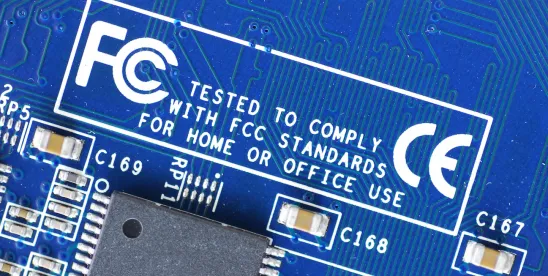911 Reliability Certification Settlements
The FCC’s Enforcement Bureau announced that they have reached settlements with seven telecommunications providers for failing to file timely 911 service reliability certifications last year. The seven companies are Alteva of Warwick, Arkwest Communications, Cass Telephone Company, ComSouth Telecommunications, Dumont Telephone Company, Genesco Telephone Company, and Union Telephone Company. In the settlements, each provider agreed to pay a civil penalty, ranging from $2,400-$4,000, and implement a compliance plan. The Chief of the FCC’s Public Safety and Homeland Security Bureau stated that the settlements “should remind industry to take [911 service reliability certification] requirements seriously.”
ACHP on Twilight Towers
Last week, the Advisory Council on History Preservation (ACHP) declined the FCC’s request to issue a Program Comment to address collocations of wireless equipment on “twilight towers” (Vol. XVII, Issue 38). In a statement issued last week, the ACHP explained that its membership “believes the Program Comment as submitted is substantively deficient, and more time is needed to work with FCC and consulting parties to revise the proposal in a way that would provide a more appropriate resolution of the issues.” In a letter to FCC Commissioner Carr from ACHP Chairman Jorjani further explained that the ACHP did not have the time needed to work with the FCC and consulting parties to revise the proposal. The ACHP commits to working closely with the FCC to develop a revised Program Comment “within a reasonable timeframe.”
3.45-3.55 GHz Band Legislation
Last week, a group of Republican Senators and Congressmen introduced the Beat CHINA for 5G Act. The bill requires the FCC to begin an auction of the 3.45-3.55 Band by December 2021. This follows the announcement by the White House and the Department of Defense to make 100 MHz in the 3450-3550 MHz available for 5G use by the end of the summer (Vol. XVII, Issue 33) and the FCC’s Order and FNPRM seeking comment on its proposal to allocate the 3.45-3.55 GHz band spectrum for flexible-use service and seeking comment on a non-federal and federal coordination scheme as well as technical rules, licensing, and competitive bidding rules for the band (Vol. XVII, Issue 40). The goal of the Beat CHINA for 5G Act is to make sure that these plans are not delayed and the auction commences in a timely manner.
Private Line Order on Review
The Commission adopted an Order on Review, which affirmed the Commission’s 2017 Private Line Order. The Private Line Order clarifies the Commission’s “10% rule,” which provides that if more than 10% of traffic on a private line is interstate, the private line is classified as interstate for the purposes of USF contributions. XO Communications and TDS Metrocom sought review of the Private Line Order, claiming that it “imposed new evidentiary standards and a new burden of proof, without providing the opportunity for notice and comment required by the Administrative Procedure Act,” among other claims. The Commission disagreed and affirmed the 2017 Private Line Order, finding that their “decision ensuring that our filing requirements are adhered to by all contributors helps to safeguard the integrity of the Fund, resulting in a more stable funding base for the preservation and advancement of universal service.”
Timothy A. Doughty, Kathleen Slattery Thompson and Adam (AJ) Reust contributed to this article.







 />i
/>i

